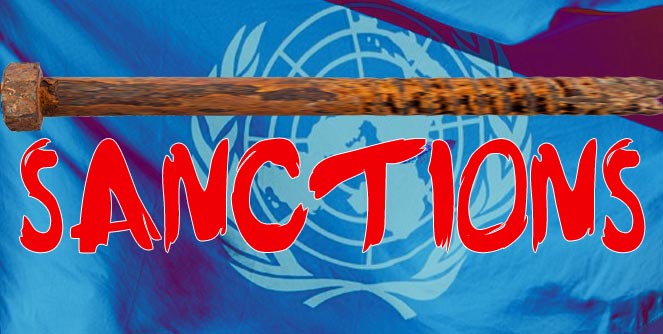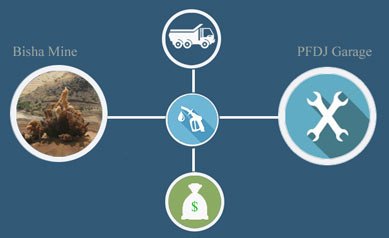Expressen Gets Its Wrong
By: saay
The online edition of Swedish newspaper Expressen has an article with the heading (in Swedish) “Ministern bekräftar: Har lämnat regimen”. Google translate assures me that this means “Minister confirms: Has left the regime.” The article carries the byline of “Kassem Hamadé” who says that he got all this information (“world exclusive interview”) from his brother Saleh Younis who was speaking on his behalf. Well. So, the spokesperson of the Eritrean regime now has a spokesperson who speaks for him?
This is what happened.
Kassem Hamade called me to see if he can get in touch with Ali Abdu. I gave him the standard answer: Ali Abdu is not speaking but I will relay your message to him. This is usually where conversations end. In this particular case, I made an offer: I cannot speak about the specific case of Ali Abdu, but I can speak about the nature of the Eritrean regime. This way, every time a minister defects, you–Western reporters, Western governments–can adjust your expectations in terms of the news you can expect.
I made this offer because I feel for the family of Dawit Isaac. I have high regard for the humanitarian values of the government and people of Sweden: there is one Eritrean-Swede that they have and they have gone all out to inquire about his health and security for 11 years. However, when I see them and other human rights advocates taking the approach of let’s organize a petition to, for example, the Justice Minister Fozia Hashim (!), it is clear to me that they have absolutely no understanding about the true nature of the Eritrean regime.
I have a special affinity for two journalists from the Eritrean Spring, when the Eritrean private press was blooming in 2001: one of them is Dawit Isaac. We belonged to a (very brief) mutual fan club, and he sent me autographed copies of his books in April of that fateful year.
My message to Kassem Hamade was this: if a special plane–let’s call it Scandinavian Airlines–somehow managed to transfer the entire Eritrean Cabinet of Ministers to the corporate office of Expressen, and if the entire journalistic staff of Expressen was to interview them for days, weeks, months; if they were to water-board them, they would not be able to get a single useful information on the whereabouts of Dawit Isaac or any of the thousands of Eritreans who have been made to disappear. If they interviewed the Police Commissioner, they would get nothing. Not because the ministers or other “senior officials” have superhuman powers of resistance but because they know virtually nothing.
Then, who would know? He asked. I told him that the most detailed information we have on the Eritrean prisoners came from an Ethiopian-government friendly Ethiopian website, aigaforum.com. (I even spelled out the url for him.) This is because Eritreans, by the thousands, have been crossing the border to Ethiopia, and Ethiopian intelligence interviews them and some of them are former prison wardens, intelligence officers, body guards of Isaias Afwerki, etc. They connect the stories together and they have the most comprehensive information on our political prisoners.
Who else? I told him he could talk to Eritreans who are very active in helping Eritrean asylum-seekers. Eritreans like Meron Estifanos and Elsa Chyrum.( I spelled their names and their facebook pages.) This is because some of the asylum-seekers are also former prison wardens, intelligence officers, etc. I told him that that is exactly how I got confirmation on the whereabouts of my father when he was first arrested in 2001: not from Ali Abdu, or Fozia Hashem: but from a former prison guard (who was also guarding student activist Semere Kesete) who told me where my father was jailed and who else was with him. It is from the testimonies that Elsa Chyrum got from Eritrean youth that we know what happened in Wia, Dahlak. It is from the testimonies that Meron Estifanos receives that we know how our Eritrean youth are being treated in the Sinai desert. And all the “cabinet of ministers” receive information about what is going on within their own MINISTRIES from us. When the Finance Minister (Berhane Abrehe) was recently changed, the “council of ministers” knew about it when the new guy attended the meeting. So, stop giving the families of the imprisoned false hope by chasing rainbows.
How is that possible, asked Kassem Hamade. I told him that the “culture” of the EPLF/PFDJ is to stick to your job, to never ask any questions about matters that do not concern you (the military culture of “loose lips sink ships.”) I told him that there is no paper trail: no email, no arrest warrant, nothing on paper; that orders are given by phone and that those doing the arrest say “you are wanted for five minutes.” I told him that those who are doing the arresting have no idea why the person being arrested is being arrested; the people guarding the prisons have no idea why the prisoner arrived there and how long he is supposed to be there. That is the “system” in Eritrea.
Our assumptions about who is “very close”, who is “very connected” are not right because the way Isaias Afwerki manages is by refusing to be predictable. You think so-and-so is next in line for the position of such-and-such? Wrong: he will surprise you. You think that Yemane Gebreab is super-close to Isaias Afwerki, he is a “special advisor”? Well, Yemane Gebreab assured the widow of Naizghi Kflu that the remains of her husband will be flown to Eritrea: and how did that turn out? Mustapha Nurhussein is best friends with Isaias Afwerki? How did that turn out?
In short, what Kassem Hamade is claiming a “world exclusive interview” with Ali Abdu was a “world exclusive interview” with me. I didn’t know I was that important, but I am flattered. There were only two questions that I said I would get the answers directly from Ali as I had no way of knowing the answers. (1) How does Ali feel about the arrest of Dawit Isaac? Is he sad? (2) Has the Swedish government tried to reach him?
On the first one, Ali Abdu told me that, of course he feels sad for the family of Dawit Isaac, but–and he said, “this is probably not the answer the journalist wants to hear–but Dawit Isaac is one of tens of thousands of Eritreans suffering and what makes me specially sad is the case of the next generation of Eritreans disappearing. I was 14 when I enlisted, voluntarily, because there were people I looked up to. And I fought for my country’s independence and to be able to deliver a better future for the next generation. Who does the new generation have to look up to?”
On the second one, whether the Swedish government has tried to reach him, Ali wanted to know why is that even relevant. I said, well, Western journalists are always trying to put pressure on their government to try harder. So that’s why. He said, “no they haven’t–and how could they if you are my contact person anyway, I am surprised you are asking me that question.”
In short, an interview I had with Kassem Hamade with my humble effort to try to shed light on how the mafia regime works in Eritrea, became an interview by proxy–“world exclusive” at that. When Ali decides to issue a statement, it will not be via a proxy and I am sure it won’t be on Expressen–with all due respect to the paper.



Awate Forum